

E-Books → The Critique of Nonviolence Martin Luther King, Jr., and Philosophy
Published by: voska89 on 22-01-2023, 21:16 |  0
0

Mark Christian Thompson, "The Critique of Nonviolence: Martin Luther King, Jr., and Philosophy"
English | ISBN: 1503631133 | 2022 | 232 pages | EPUB | 2 MB
How does Martin Luther King, Jr., understand race philosophically and how did this understanding lead him to develop an ontological conception of racist police violence? In this important new work, Mark Christian Thompson attempts to answer these questions, examining ontology in Martin Luther King, Jr.'s philosophy. Specifically, the book reads King through 1920s German academic debates between Martin Heidegger, Rudolf Bultmann, Hans Jonas, Carl Schmitt, Eric Voegelin, Hannah Arendt, and others on Being, gnosticism, existentialism, political theology, and sovereignty. It further examines King's dissertation about Tillich, as well other key texts from his speculative writings, sermons, and speeches, positing King's understanding of divine love as a form of Heideggerian ontology articulated in beloved community. Tracking the presence of twentieth-century German philosophy and theology in his thought, the book situates King's ontology conceptually and socially in nonviolent protest. In so doing,
E-Books → The Critique of Work in Modern French Thought From Charles Fourier to Guy Debord
Published by: voska89 on 19-01-2023, 15:06 |  0
0
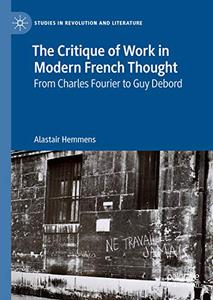
Alastair Hemmens, "The Critique of Work in Modern French Thought: From Charles Fourier to Guy Debord"
English | 2019 | ISBN: 3030125858, 3030125882 | PDF | pages: 233 | 1.9 mb
What is work? Why do we do it? Since time immemorial the answer to these questions, from both the left and the right, has been that work is both a natural necessity and, barring exploitation, a social good. One might criticise its management, its compensation and who benefits from it the most, but never work itself, never work as such. In this book, Alastair Hemmens seeks to challenge these received ideas. Drawing on the new 'critique-of-value' school of Marxian critical theory, Hemmens demonstrates that capitalism and its final crisis cannot be properly understood except in terms of the historically specific and socially destructive character of labour. It is from this radical perspective that Hemmens turns to an innovative critical analysis of the rich history of radical French thinkers who, over the past two centuries, have challenged the labour form head on: from the utopian-socialist Charles Fourier, who called for the abolition of the separation between work and play, and Marx's wayward son-in-law, Paul Lafargue, who demanded The Right to Laziness (1880), to the father of Surrealism, André Breton, who inaugurated a 'war on work', and, of course, the French Situationist, Guy Debord, author of the famous graffito, 'never work'. Ultimately, Hemmens considers normative changes in attitudes to work since the 1960s and the future of anti-capitalist social movements today. This book will be a crucial point of reference for contemporary debates about labour and the anti-work tradition in France.
E-Books → Advaita A Contemporary Critique
Published by: voska89 on 9-01-2023, 16:50 |  0
0
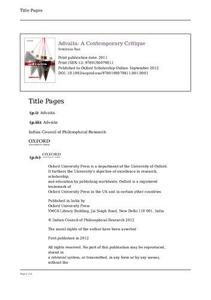
Advaita: A Contemporary Critique By Srinivasa Rao
2012 | 240 Pages | ISBN: 0198079818 | PDF | 4 MB
Advaita has been extensively studied by various schools of philosophy in classical India. In contemporary times, however, it has only been compared to the philosophies of Immanuel Kant and F.H. Bradley. This book offers a comprehensive critique of Advaita, which is very contemporary in itsoutlook, analysis, and technique. It raises several new and fundamental questions while answering old and classical questions from a contemporary perspective. Srinivasa Rao supplements the classical Indian analysis with many special concepts and techniques extensively used in contemporary Westernlogic and analytic philosophy. The book discusses whether what classical Advaita had maintained centuries ago can still be maintained, and if at all it is possible, in exactly which way.This book will be of considerable interest to scholars, teachers, and students of Indian philosophy.
E-Books → Saving Belief A Critique of Physicalism
Published by: voska89 on 29-12-2022, 15:55 |  0
0
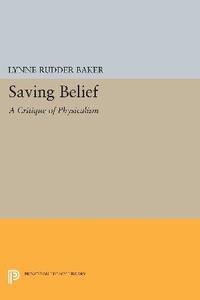
Saving Belief: A Critique of Physicalism By Lynne Rudder Baker
2017 | 192 Pages | ISBN: 0691602247 | PDF | 11 MB
This stimulating book critically examines a wide range of physicalistic conceptions of mind in the works of Jerry A. Fodor, Stephen P. Stich, Paul M. Churchland, Daniel C. Dennett, and others. Part I argues that intentional concepts cannot be reduced to nonintentional (and nonsemantic) concepts; Part II argues that intentional concepts are nevertheless indispensable to our cognitive enterprises and thus need no foundation in physicalism. As a sustained challenge to the prevailing interpretation of cognitive science, this timely book fills a large gap in the philosophical literature. It is sure to spark controversy, yet its clarity makes it attractive as a text in upper-level undergraduate and graduate courses in philosophy of mind and cognitive science. Saving Belief should be read by philosophers, psychologists, and others interested in the philosophy of language, philosophy of mind, and cognitive science.Originally published in 1988.The Princeton Legacy Library uses the latest print-on-demand technology to again make available previously out-of-print books from the distinguished backlist of Princeton University Press. These editions preserve the original texts of these important books while presenting them in durable paperback and hardcover editions. The goal of the Princeton Legacy Library is to vastly increase access to the rich scholarly heritage found in the thousands of books published by Princeton University Press since its founding in 1905.
E-Books → Fashionable Nihilism A Critique of Analytic Philosophy
Published by: voska89 on 28-12-2022, 13:13 |  0
0
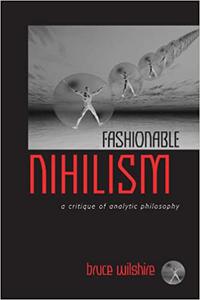
Bruce Wilshire, "Fashionable Nihilism: A Critique of Analytic Philosophy"
English | 2002 | ISBN: 0791454304 | 172 pages | PDF | 0.58 MB
One of America's foremost philosophers reflects on the discipline and its relation to everyday life.
E-Books → Teaching Spivak Otherwise A Contribution to the Critique of the Post-Theory Farrago
Published by: voska89 on 23-12-2022, 00:06 |  0
0
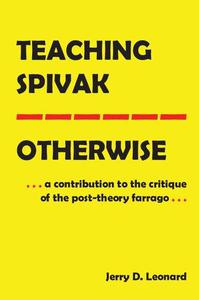
Teaching Spivak Otherwise: A Contribution to the Critique of the Post-Theory Farrago By Jerry D. Leonard
2019 | 104 Pages | ISBN: 1433163519 | PDF | 4 MB
Grounded in the revolutionary Marxist view that "theory ... becomes a material force when it has seized the masses," Teaching Spivak―Otherwise: A Contribution to the Critique of the Post-Theory Farrago activates the practice of critique as a mode of "teaching otherwise" for transformative social change. Taking the post-theory teachings of Gayatri Chakravorty Spivak as its central focus, author Jerry D. Leonard meticulously unpacks Spivak's fashionably dense writings and "talks." His analyses reveal that what passes for "radical" thought in the dominant humanities is actually a sustained mystification that attempts to erase class struggle and class critique from the realm of knowledge. One of the book's most significant interventions is its powerful appropriation of "close reading" as a strategy in the broader project of ideology critique. Teaching Spivak―Otherwise does for Spivak what Frederick Engels did for Eugen Dühring and Mao Zedong did for Deng Xiaoping: it teaches the class lesson that Spivak's thought is a complexly obscured articulation of "new" ruling class ideas in what Lenin called "a farrago of contrasting principles ..., an urge to rise verbally to the higher spheres and conceal the conflicts between the historical groups of the population with phrases." This book will be a useful supplementary text for undergraduate and graduate courses in contemporary critical theory and pedagogy.
E-Books → The knowledge of good critique of axiological reason
Published by: voska89 on 22-12-2022, 18:18 |  0
0
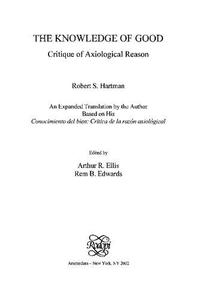
The knowledge of good: critique of axiological reason By Robert S. Hartman, Arthur R. Ellis, Rem B. Edwards
2002 | 495 Pages | ISBN: 904201220X | PDF | 9 MB
Video Training → CreativeLive – Landscapes Live Photo Critique By John Greengo
Published by: voska89 on 1-12-2022, 03:59 |  0
0

CreativeLive – Landscapes Live: Photo Critique By John Greengo
Content Source:https://www.creativelive.com/class/landscapes-live-photo-critique-john-greengo
Genre / Category:Photography
File Size :626MB
E-Books → The Book of Absolutes A Critique of Relativism and a Defence of Universals
Published by: voska89 on 24-11-2022, 09:51 |  0
0
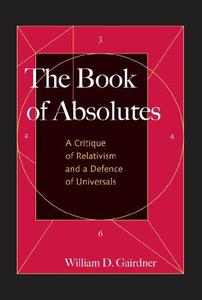
The Book of Absolutes: A Critique of Relativism and a Defence of Universals By William D. Gairdner
2008 | 416 Pages | ISBN: 077353413X | PDF | 3 MB
Current dogma holds that all cultures and moral values are conditional, nothing human is innate, and Einstein proved that the whole universe is 'relative'. Challenging this position, William Gairdner argues that relativism is not only logically and morally self-defeating but that progress in scientific and intellectual disciplines has actually strengthened the case for absolutes, universals, and constants of nature and human nature. Gairdner refutes the popular belief in cultural relativism by showing that there are hundreds of well-established cross-cultural 'human universals'. He then discusses the many universals found in physics - as well as Einstein's personal regret at how his work was misinterpreted by the public's eagerness to promote relativism.Gairdner also gives a lively account of the many universals of human biology, including the controversial topic of universal gender differences or 'brain sex'. He then looks at universal concepts of both natural and international law, and ends by discussing language theory. He shows how philosophers from Nietzsche to Derrida have misused linguistic concepts to justify their relativism, even though a sustained and successful effort by serious scientists and philosophers of language has revealed myriad universals of human language, ranging from language acquisition, to word-order, to 'Universal Grammar'. From ethics to Einstein, culture to biology, law to language, "The Book of Absolutes" makes complex topics accessible to a broad audience and demonstrates that there are plenty of certainties, even in our postmodern world.
E-Books → Hypercapitalism A Cartoon Critique of the Modern Economy and Its Values
Published by: voska89 on 19-11-2022, 03:53 |  0
0
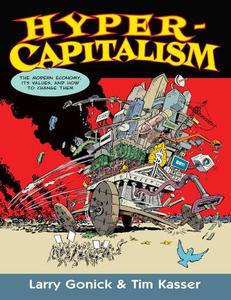
Hypercapitalism: A Cartoon Critique of the Modern Economy and Its Values By Larry Gonick; Tim Kasser
2017 | 224 Pages | ISBN: 1620972824 | PDF | 114 MB
PAPERBACK ORIGINAL From the bestselling cartoonist of The Cartoon History of the Universe comes an explosively graphic take-down of capitalismBestselling "overeducated cartoonist" Larry Gonick has delighted readers for years with sharp, digestible, and hilarious accounts of everything from the history of the universe to the story of calculus. Now Gonick teams up with psychologist and scholar Tim Kasser, an expert on how happiness and values relate to our materialist society, to create an incomparable cartoon guide to what, exactly, is wrong with modern life, why we're all so miserable-and what can be done about it.Hypercapitalism is an accessible and pointed cartoon guide to the threats to humans, our society, and the environment posed by the current form of global capitalism. In pointed, profound, and entertaining cartoon narratives, the authors take readers inside the inner workings of the global economy, rendering even the most complex ideas in clear, plain-and sometimes hilarious-terms. A primer for the post-Occupy generation, Hypercapitalism also provides a concise introduction to the thinkers (Stiglitz, Piketty, Sandel, Schor, et al.), movements (voluntary simplicity, the sharing economy, intentional communities, the time-affluence movement), and concepts (hypercapitalism, corporate power, GNP alternatives), that are critical to understanding and changing the world we live in.



